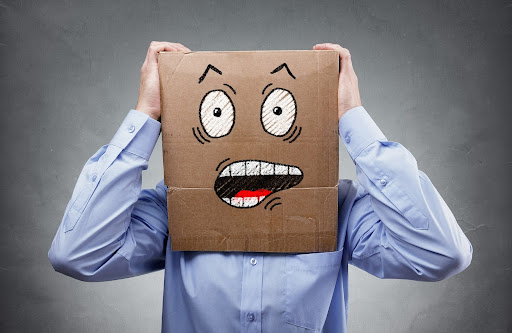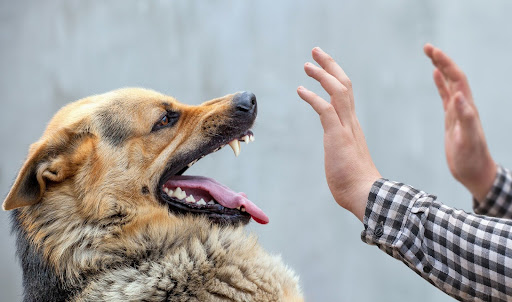
Several potential legal issues exist in HOAs. Board members must familiarize themselves with these issues and understand how to tackle them. This approach allows the board to prevent litigation and protect harmony within the community.
Common Legal Issues of HOAs and How to Deal With Them
Homeowners associations play an important role in managing and maintaining community standards. While board members have good intentions, legal issues can still arise. These issues can create friction and lead to costly disputes. As such, HOA boards and homeowners must know the potential legal problems to address them promptly and appropriately.
Here are the potential legal actions against HOAs and how to handle them.
1. Misappropriation of Funds
One of the most serious legal issues of HOAs is the misappropriation of funds. HOA boards are entrusted with managing community funds, which include homeowner dues and assessments. These funds should go to maintenance, repairs, and other community expenses. However, board members’ financial mismanagement or outright theft can lead to serious legal consequences.
Transparency and accountability are key to avoiding misappropriation of funds. Boards should implement strict financial controls, conduct regular audits, and provide homeowners with clear financial reports.
Additionally, the board should require multiple signatories for large expenditures. This can help prevent misuse of funds. Homeowners also have the right to request financial documents. As such, HOAs should be ready to comply with such requests to demonstrate responsible handling of funds.
2. Rejection of Architectural Requests

HOAs often have rules regarding architectural changes to homes, such as painting, landscaping, or structural modifications. Associations usually require owners to submit architectural requests for approval before making any changes. However, disputes can arise when the board rejects these requests.
When rejecting an architectural request, the HOA must ensure the decision is based on the community’s established rules and guidelines. The board should clearly communicate the reasons for rejection and guide how the homeowner can resubmit their request to comply with the rules.
HOAs must consistently apply their architectural guidelines and avoid favoritism. Failure to do so could result in accusations of bias or unfair treatment, leading to potential legal action.
3. Dispute Over Board Decisions
Disputes between the board and homeowners are not uncommon in HOAs. Homeowners may disagree with certain board decisions, such as raising dues, implementing new rules, or allocating funds. These disagreements can escalate into legal battles.
To prevent disputes, board members should communicate openly with homeowners and explain the rationale behind their decisions. Transparency in the decision-making process fosters trust and can help reduce conflict. In cases where disputes do arise, practicing dispute resolution can greatly reduce litigation.
4. Violations
Homeowners may violate HOA rules intentionally or unintentionally, leading to fines, penalties, or legal action. Common violations include failing to maintain property, parking infractions, or having unapproved modifications.
HOAs need to have a transparent and fair enforcement process in place. This includes sending warning notices and giving homeowners reasonable time to correct the violation. Legal issues often arise when an HOA fails to follow due process or enforcement is inconsistent.
Additionally, the board should impose reasonable fines in line with the governing documents. If a homeowner feels their penalty is unfair, they may seek legal recourse.
5. Failure to Maintain Common Areas
Associations are responsible for maintaining common areas such as parks, pools, and clubhouses. If the board neglects this duty, it can lead to complaints and even legal claims from homeowners. Failing to maintain common areas can decrease property values and lead to dangerous conditions, possibly resulting in personal injury claims.
Boards should regularly inspect common areas, keep up with necessary repairs, and set aside sufficient reserves for future maintenance. Homeowners have the right to expect that their dues go towards the upkeep of shared spaces. If the board neglects this responsibility, legal battles can ensue.
6. Discrimination
Discrimination is a serious legal issue that can arise if an HOA is perceived to be treating certain homeowners unfairly based on protected characteristics such as race, religion, gender, or disability. The Fair Housing Act prohibits discrimination in housing, and HOAs must exercise caution to apply their rules and regulations evenly to all residents.
To avoid discrimination claims, HOAs should base all decisions on clear, non-discriminatory reasons. It must adhere to federal and state housing laws. Board members should also receive training on fair housing practices. A homeowner filing a discrimination claim can lead to a lawsuit. This, in turn, can tarnish the HOA’s reputation and result in financial penalties.
7. Failure to Comply With a Request
Homeowners have a right to request certain documents and information from their HOA. These include financial records, meeting minutes, and governing documents. In some cases, HOAs may fail to comply with these requests by delaying their response or outright refusing to provide the documents.
State laws usually dictate what documents HOAs must disclose and the timeframe. To avoid legal issues, HOAs should have a clear process for handling requests and ensure that they comply with relevant laws. Failing to provide the requested information can lead to legal action, especially if homeowners suspect the board is hiding something.
8. Pet Issues

Pets can be a source of legal trouble in HOA communities. While many HOAs have rules governing pet ownership, such as breed restrictions or limits on the number of pets, enforcing these rules can lead to disputes. Homeowners may feel that the HOA is overstepping its authority, especially if they believe their pet poses no harm to the community.
HOAs should ensure that pet rules are reasonable and clearly outlined in the governing documents to prevent legal issues. The board should follow the proper enforcement procedures if a homeowner violates these rules.
Additionally, it’s important to be mindful of disability laws, as some residents may have service animals or emotional support animals that are protected by the law. Associations must exercise caution not to discriminate against these homeowners.
9. Personal Injury
Personal injury claims can arise when homeowners or guests hurt themselves on HOA property. Common areas, such as sidewalks, playgrounds, and pools, must receive proper maintenance to avoid accidents. If a person suffers from an injury due to negligence on the part of the HOA, the association could be held liable for damages.
HOAs should conduct regular safety inspections of common areas to mitigate the risk of personal injury claims and promptly address any hazards. It’s also essential for HOAs to carry sufficient liability insurance to cover any potential claims.
Furthermore, the board should encourage owners to report any dangerous conditions. This way, the board can address them before an injury occurs.
Undergoing Dispute Resolution Before Litigation
Legal issues in homeowner associations can lead to lawsuits and legal damages. Due to the time-consuming and expensive nature of these suits, it’s best to prevent them by resolving disputes.
In some states, HOAs must utilize alternative dispute resolution (ADR) before pursuing litigation. California is one such state. According to Civil Code Section 5930, parties must endeavor to go through ADR before filing an enforcement action in the superior court.
ADR options include mediation and arbitration. In mediation, a third-party neutral helps parties reach a mutually acceptable resolution. However, the parties do not have to agree to the settlement.
On the other hand, in arbitration, a third-party neutral decides the outcome of the dispute after reviewing the facts and listening to all parties. Unlike in mediation, arbitration requires all parties to agree to and adhere to the arbitrator’s decision.
The Importance of an HOA Attorney
Homeowners associations would benefit from hiring the assistance of an attorney. An attorney, particularly one with experience in dealing with HOAs, can advise the board on legal matters and help the association avoid litigation. An attorney can also assist the board in amending the governing documents to ensure federal and state laws compliance.
Additionally, an attorney can aid the board with conflict resolution and assess the HOA’s exposure to risk. Should disputes escalate and become litigation, an attorney can act as the HOA’s legal representative.
Of course, attorneys charge fees for their services, so the board should account for such legal fees in the annual budget. However, attorneys play a crucial role in protecting associations from liability. As such, the benefits they bring to the table certainly outweigh the costs of their services.
The Bottom Line
While the above legal issues of HOAs are perhaps the most common, other legal problems can still arise. Board members should implement clear processes, maintain open communication, and adhere to state laws and governing documents to minimize the risk of legal disputes.
Personalized Property Management offers HOA management services, including legal assistance, around Southern California. Call us at 760-325-9500 or email us at info@ppminternet.com for more information!
RELATED ARTICLES:
